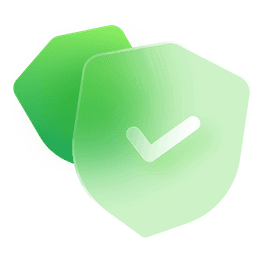CVE-2023-43795 Scanner
Detects 'Server Side Request Forgery (SSRF)' vulnerability in GeoServer affects v. < 2.22.5, < 2.23.2
Short Info
Level
Critical
Single Scan
Single Scan
Can be used by
Asset Owner
Estimated Time
10 sec
Scan only one
Domain, Ipv4
Toolbox
-
GeoServer is an open-source server for sharing, processing, and editing geospatial data. It supports various map data formats and provides extensive capabilities for spatial data management and visualization. GeoServer is widely used by GIS professionals, government agencies, and companies involved in geospatial data services to serve maps and data through web services. It implements standards from the Open Geospatial Consortium (OGC) like Web Map Service (WMS) and Web Feature Service (WFS), allowing for interoperability across different systems and platforms. The identified vulnerability affects the Web Processing Service (WPS) component of GeoServer, posing a significant security risk.
The vulnerability in GeoServer involves Server Side Request Forgery (SSRF) within its Web Processing Service (WPS) functionality. This flaw allows attackers to send crafted requests from the server to internal systems or external locations, potentially leading to unauthorized access to information or services within the network or the broader internet. The issue arises due to inadequate validation and sanitization of user-supplied inputs in WPS requests. This critical vulnerability is especially concerning as it does not require authentication, making it exploitable by any user who can send WPS requests to the server.
The SSRF vulnerability in GeoServer's WPS component is exploited through specially crafted XML-based WPS Execute requests. These requests misuse the service to initiate connections to arbitrary URLs specified by the attacker. By embedding a malicious URL in the WPS Execute request, an attacker can cause the GeoServer to make unintended HTTP GET requests to internal or external services. This can lead to the disclosure of sensitive information, interaction with unauthorized services, or exploitation of other vulnerabilities within the internal network. The vulnerability affects GeoServer versions prior to 2.22.5 and 2.23.2, which lack proper input validation mechanisms for WPS requests.
Exploiting this SSRF vulnerability can lead to several adverse effects, including information leakage, internal network mapping, external service interaction, and potentially facilitating further attacks against internal systems. Attackers can leverage this vulnerability to bypass network security measures, access restricted internal services, and exfiltrate sensitive data. Given the critical role of GeoServer in managing geospatial data, this vulnerability could have far-reaching implications for data integrity, privacy, and operational security.
By using the security scanning capabilities of SecurityForEveryone, users can detect and address vulnerabilities like CVE-2023-43795 in GeoServer. Our platform offers comprehensive vulnerability assessments, real-time monitoring, and actionable insights to enhance your cybersecurity posture. Members benefit from our expertise in identifying and mitigating threats, ensuring the security and resilience of their digital infrastructure. Joining SecurityForEveryone enables you to proactively safeguard your systems against emerging cybersecurity threats, maintain compliance, and protect sensitive data.
References

control security posture
